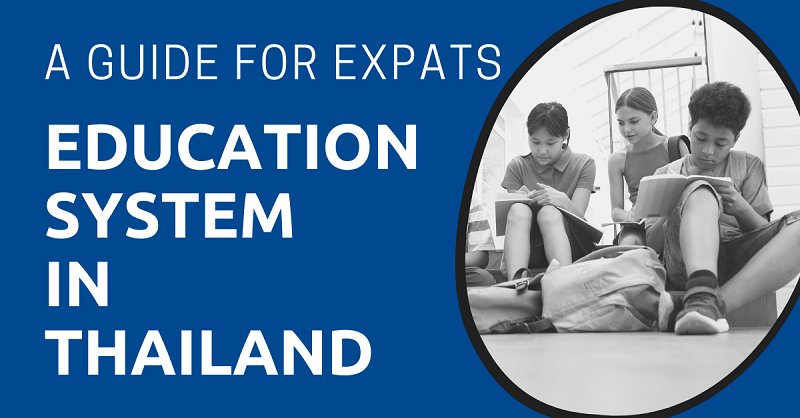
Finding a suitable school in Thailand for your children can be a daunting task.
Thailand offers free education at its public schools until grade 9. But for many expats, the language and cultural barriers make public schools a difficult option.
Thankfully, Thailand boasts over 160 international schools that offer the same standard of education as the West. But these don’t come cheap, and finding one that works for you and your children can be a challenge.
In this guide, we’ll break down how the education system works in Thailand, your options, and how much everything costs. Plus we’ll cover some less-conventional options such as homeschooling.
"*" indicates required fields
Disclaimer: This article may include links to products or services offered by ExpatDen’s partners, which give us commissions when you click on them. Although this may influence how they appear in the text, we only recommend solutions that we would use in your situation. Read more in our Advertising Disclosure.
Contents
Education Quality in Thailand
The quality of education in Thailand varies enormously.
Cons
First, the bad news. According to a 2018 UNESCO report, 12 percent of Thai students failed to achieve a minimum proficiency in math by the end of primary school. Moreover, just 50 percent of students achieved a minimum proficiency in reading by the end of lower secondary.
In 2018’s Program for International Student Assessment (PISA) exams, Thai students’ reading scores ranked 68 out of 79 countries. It beat only Indonesia and the Philippines in Asia. Math and science were not much better. Thailand ranked 59 and 55 in those, respectively.
According to those same statistics, 45 percent of schools in rural Thailand have basic sanitation facilities. And only 60 percent have access to drinking water.
Even worse, a third of students aged 13 to 15 report that they had experienced bullying at school. Twenty-nine percent had experienced physical violence.
Many Thai schools still practice corporal punishment although it’s illegal. Curricula are still rooted in old-fashioned rote learning, despite government efforts to improve them. Classrooms are over-sized, and teachers are overworked and underpaid. I can vouch for single-room classes of 50-plus students in rural areas.
So, that’s the bad news.
Pros
The good news for expats is that it is possible to get a very good education in Thailand. There are good schools in each province throughout Thailand. In cities like Bangkok or Chiang Mai, the number of good schools increases.
This is due to the fact that there’s a large quality gap between big-city schools and those in rural areas.
The situation in Thailand’s cities is a lot better, as they have many top public and private schools.
Also, Thailand boasts over 160 international schools, with new ones opening every year. These schools follow the curriculum of another country or a dedicated international curriculum.
Let’s take a closer look at each of those options.
Kindergartens and Preschools
Government schools in Thailand offer two years of kindergarten for children aged 3 to 4. They also offer one year of preschool for 5-year-olds. Most private and international schools offer similar programs, albeit for a price.
Although these programs are optional, they tend to be extremely popular. They give kids an early advantage over their peers who begin compulsory education at age 6. And, in a country where both parents usually work, it means kids have someone to watch over them during the day.
For parents who want to start their children’s education early, language schools like Helen Doron offer courses for kids as young as 3 months old.
As stated above, most of the big international schools like Shrewsbury offer kindergarten programs for children age 3 and up.
Some good specialist kindergartens include The Apple Tree and Raintree.
Thai Schools
Although all the schools in this article are in Thailand, not all follow the national curriculum. So, in this section, we’ll focus on schools that follow Thailand’s National Curriculum, as set by the Ministry of Education.
Thai curriculum schools fall under two categories:
- government schools
- private schools
Government Schools
Government schools collect funds from the government rather than fees paid by parents. Government schools are free for all Thai citizens, includes children with one Thai parent. So if you’re married to a Thai person, your child can get a free education.
If you register your child at a government school, you have to submit your child’s birth certificate and tabien baan, or house registration.
Although the education is free, parents have to pay for school fees, textbooks, stationary, and uniforms. This cost ranges from a few thousand baht to over THB20,000 per year, depending on the school.
Many schools also offer extra-curricula classes in English. So, your child can learn science and math in English, often by native-speaking teachers. After-school classes are also available.
Government schools tend to be where most of the problems we mentioned above lie. Low test scores an overcrowded classrooms are the most common issues. But it would be unfair to write government schools off completely.
Some government schools such as Triam Udom Suksa come highly regarded, and competition to get kids enrolled can be fierce.
Private Schools
Private schools follow the Thai curriculum but are funded by tuition fees. As a result, private schools offer better facilities and smaller class sizes than government schools. This makes them a good choice for parents who want their children to receive a Thai-style education without the problems that many government schools face.
Many of Thailand’s private schools were set up by Christian missionaries. The most famous is the all-boys Bangkok Christian College. In fact, it’s 171 years old — Thailand’s oldest operating school.
Others are technical or demonstration schools attached to universities, known as satit schools in Thai. Chulalongkorn Demonstration School is one example. There are also several chains of private schools, the most common of which are the Sarasas schools.
Private schools are a good option for parents on a budget. They provide many of the same benefits that international schools provide at lower costs.
One potential downside for expats is that most subjects at private schools are taught in Thai. This can make life hard for kids who aren’t native Thai speakers.
Many private schools have English programs like government schools. The core subjects like math and science are taught in English, while everything else is taught in Thai. But these programs usually come at a higher cost.
International Schools
International schools follows a curriculum other than that of Thailand’s national curriculum. The curriculum can come from the U.K. or the U.S. Or is can be a dedicated international curriculum such as the International Baccalaureate. International schools — particularly British schools — are offshoots of private schools in their respective countries. Two of these are Harrow and Shrewsbury.
International schools were set up to ensure continuity in education for the children of expats working abroad. Nowadays, they are an attractive proposition for many locals. After all, children can get a prestigious international education without leaving Thailand.
International schools aim to offer the same level of education as top schools in the West do. So they tend to offer top-of-the-line facilities and highly qualified teachers. As a result, fees tend to be on the pricier side, with annual tuition as high as THB1,000,000 per year at the best schools. But there are more reasonably priced schools out there.
That said, international schools are usually the best choice for most expat families.
Classes at most international schools are almost entirely in English. Although most international schools do include compulsory Thai lessons. And students can earn qualifications that they can use in their home countries. These include the GCSEs/A-Levels at U.K. schools and SATs at U.S. schools.
For more information, check out our guide on choosing the right international school.
Universities
Westerners may not consider Thailand a good option for higher education, but the country does have some top universities. But only a handful of Thai universities rank in international surveys. And only Chulalongkorn University falls within QS’s Top 300 as of June 2023, at position number 211.
Compared to their Western counterparts, Thai universities are inexpensive. And there are plenty of options for expats who want to study in a pleasant environment.
The most prestigious universities in Thailand are Chulalongkorn, Thammasat, and Mahidol. These universities are funded by the Thai government, but are otherwise self-governing.
As a result, tuitions are relatively low, as little as THB12,000 per term for some courses. But requirements for enrollment are very high. These schools also offer courses in English, although these tend to be pricier.
Private universities such as Bangkok University or Assumption offer English programs too. They actively recruit international students, so they may be a better choice for expats.
For more information, check out our article on universities in Thailand.
Homeschooling
Homeschooling is an increasingly popular option for Thai and expat parents in Thailand. Homeschooling lets parents create a more tailor-made education for their children.
An there are plenty of benefits to homeschooling. You can adjust the curriculum to your children’s interests. They can work at their own pace. And you save a lot of money on tuition fees, uniforms, and commuting.
On the flip-side, it’s not for everyone. Homeschooling requires a lot of time, energy, and research from parents who might be trying to hold down full-time jobs.
One common criticism of homeschooling is that it reduces children’s social skills. But this is not the case, especially in Thailand where plenty of expat and Thai families homeschool and hold get-togethers.
Some homeschooling parents supplement their children’s homeschooling with co-ops. At these co-ops, homeschooling families get together for academic classes, sports, field trips, and more.
If you’re interested in homeschooling your children in Thailand, search for some groups on Facebook. That’s a great place to meet other homeschoolers in the country.
For more information, check out or guide to homeschooling in Thailand.
Costs
As stated above, the cost of education in Thailand can vary, from practically free to over a million Thai Baht per year. School fees average at around THB500,000 per year. But expect this sum to change from year to year because fees increase with each year of education. So, parents of grade 12 students pay significantly more than those of kindergarten students.
There are also a whole bunch of extra costs to consider, such as application fees, deposits, and cost of materials.
Here is a sample of average annual fees from some well-known schools in Thailand. Note that these fees are for mainstream classes only. Some schools may offer extra programs that could may cost extra.
| Triam Udom Suksa | Bangkok Christian College | Ruamrudee International School | Harrow International School | NIST International School | |
| Kind of School: | Government | Private | International (USA) | International (UK) | International (IB) |
| KG: | – | – | THB464,000 | THB644,500 | THB541,700 |
| Year 1-6/P1-P6: | – | THB40,000 | THB464,000 | THB753,900 | THB703,500 |
| Year 7/M1-3: | – | THB38,000 | THB665,000 | THB853,500 | THB823,600 |
| Year 10-13/M4-6: | THB12,000 | THB80,000 | THB734,000 | THB925, 500 | THB895,000 |
Now, on to You
There are many great schools in Thailand that will suit the needs of any expat family.
Plus, because there are so many international schools in Thailand, your children’s education won’t be disrupted. They’ll fit right in whether they come from the U.S., U.K., or anywhere else.
Regardless of where you’re coming from, your children can get a quality, yet inexpensive education in Thailand.
Essential Guides on Education System in Thailand
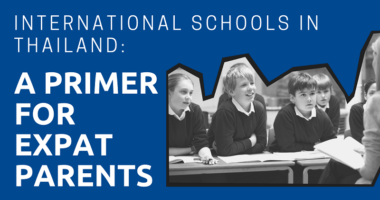 How to Pick the Best International Schools in Thailand for Expats 2023-06-21 Of all the stresses that moving to a new country generates for families, finding a good school must surely rank… ... Read more
How to Pick the Best International Schools in Thailand for Expats 2023-06-21 Of all the stresses that moving to a new country generates for families, finding a good school must surely rank… ... Read more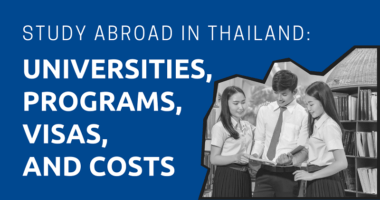 Study Abroad in Thailand: Universities, Programs, Visas, and Costs 2023-06-20 Choosing a university can be one of the hardest decisions that you’ll ever have to make, especially since this is… ... Read more
Study Abroad in Thailand: Universities, Programs, Visas, and Costs 2023-06-20 Choosing a university can be one of the hardest decisions that you’ll ever have to make, especially since this is… ... Read more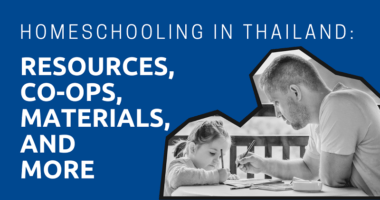 Homeschooling in Thailand: Resources, Co-ops, Materials, and More 2023-06-02 How to educate your children at home and build a richer family experience. ... Read more
Homeschooling in Thailand: Resources, Co-ops, Materials, and More 2023-06-02 How to educate your children at home and build a richer family experience. ... Read more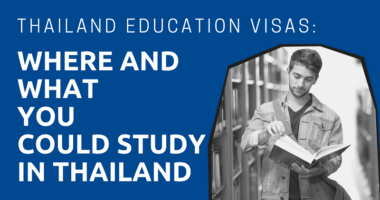 Thailand Education Visas: Where and What You Could Study in Thailand 2023-05-31 The Thai education visa. It’s not just for learning Thai. Despite popular belief, you can come to Thailand to study… ... Read more
Thailand Education Visas: Where and What You Could Study in Thailand 2023-05-31 The Thai education visa. It’s not just for learning Thai. Despite popular belief, you can come to Thailand to study… ... Read more
Latest Guides on Education System in Thailand
-
 The Best Summer Camps for Kids in Thailand 2024: A Comprehensive Guide 2024-04-05 Thailand offers an abundance of exciting and educational summer camps for all interests and age groups, from the beach to…
The Best Summer Camps for Kids in Thailand 2024: A Comprehensive Guide 2024-04-05 Thailand offers an abundance of exciting and educational summer camps for all interests and age groups, from the beach to… -
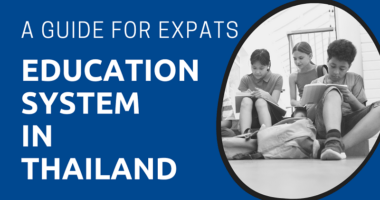 Education System in Thailand: A Guide for Expats 2023-11-20 Everything you need to know about public, private, and international schools in the country.
Education System in Thailand: A Guide for Expats 2023-11-20 Everything you need to know about public, private, and international schools in the country. -
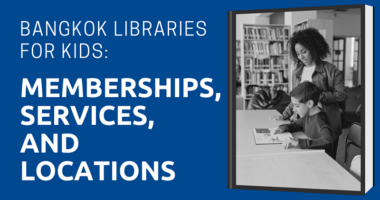 Bangkok Libraries for Kids: Memberships, Services, and Locations 2023-06-22 As a homeschooling family in Bangkok, libraries help us educate our daughters. Libraries provide us with all the supplemental books…
Bangkok Libraries for Kids: Memberships, Services, and Locations 2023-06-22 As a homeschooling family in Bangkok, libraries help us educate our daughters. Libraries provide us with all the supplemental books… -
 How to Pick the Best International Schools in Thailand for Expats 2023-10-03 Of all the stresses that moving to a new country generates for families, finding a good school must surely rank…
How to Pick the Best International Schools in Thailand for Expats 2023-10-03 Of all the stresses that moving to a new country generates for families, finding a good school must surely rank… -
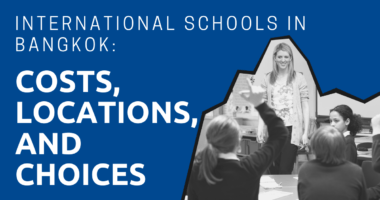 Recommended International Schools in Bangkok 2023: Costs, Locations, and Choices 2023-06-21 This article is the second part of our Thailand international school series. If you’d like to learn more about international…
Recommended International Schools in Bangkok 2023: Costs, Locations, and Choices 2023-06-21 This article is the second part of our Thailand international school series. If you’d like to learn more about international… -
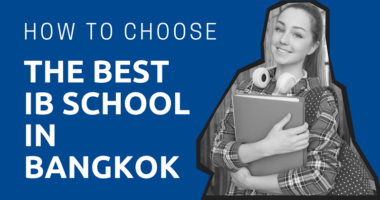 How to Choose the Best IB School in Bangkok 2023-08-01 The International Baccalaureate (IB) Organisation was founded in 1968 in Switzerland. The brainchild of teachers at the International School of…
How to Choose the Best IB School in Bangkok 2023-08-01 The International Baccalaureate (IB) Organisation was founded in 1968 in Switzerland. The brainchild of teachers at the International School of… -
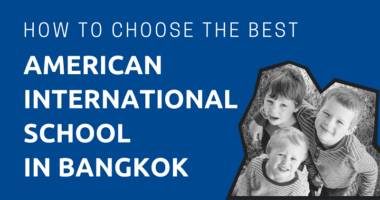 How to Choose the Best American International School in Bangkok 2023-06-26 There’s a lot to think about when it comes to choosing an international school – fees, accreditation, location, exam results.…
How to Choose the Best American International School in Bangkok 2023-06-26 There’s a lot to think about when it comes to choosing an international school – fees, accreditation, location, exam results.… -
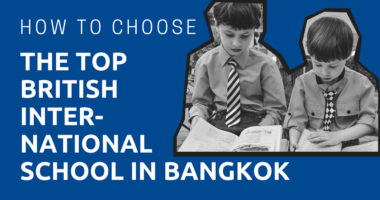 How to Choose the Top British International School in Bangkok 2023-06-26 For many people the United Kingdom and educational excellence go hand-in-hand. Universities like Oxford and Cambridge or schools like Eton…
How to Choose the Top British International School in Bangkok 2023-06-26 For many people the United Kingdom and educational excellence go hand-in-hand. Universities like Oxford and Cambridge or schools like Eton… -
 Study Abroad in Thailand: Universities, Programs, Visas, and Costs 2023-06-20 Choosing a university can be one of the hardest decisions that you’ll ever have to make, especially since this is…
Study Abroad in Thailand: Universities, Programs, Visas, and Costs 2023-06-20 Choosing a university can be one of the hardest decisions that you’ll ever have to make, especially since this is… -
 Homeschooling in Thailand: Resources, Co-ops, Materials, and More 2023-10-03 How to educate your children at home and build a richer family experience.
Homeschooling in Thailand: Resources, Co-ops, Materials, and More 2023-10-03 How to educate your children at home and build a richer family experience. -
 Thailand Education Visas: Where and What You Could Study in Thailand 2023-10-03 The Thai education visa. It’s not just for learning Thai. Despite popular belief, you can come to Thailand to study…
Thailand Education Visas: Where and What You Could Study in Thailand 2023-10-03 The Thai education visa. It’s not just for learning Thai. Despite popular belief, you can come to Thailand to study… -
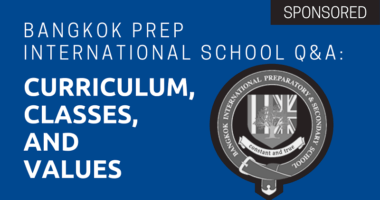 Bangkok Prep International School Q&A: Curriculum, Classes, and Values 2022-10-04 When looking for an international school in Bangkok for your children, you’ll most likely want a school known for its…
Bangkok Prep International School Q&A: Curriculum, Classes, and Values 2022-10-04 When looking for an international school in Bangkok for your children, you’ll most likely want a school known for its… -
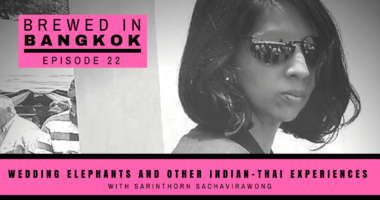 BiB022: Wedding Elephants and Other Indian-Thai Experiences 2023-06-21 Ever since my first days in Bangkok it struck me how the Indian Thai community always seemed to have their…
BiB022: Wedding Elephants and Other Indian-Thai Experiences 2023-06-21 Ever since my first days in Bangkok it struck me how the Indian Thai community always seemed to have their…


